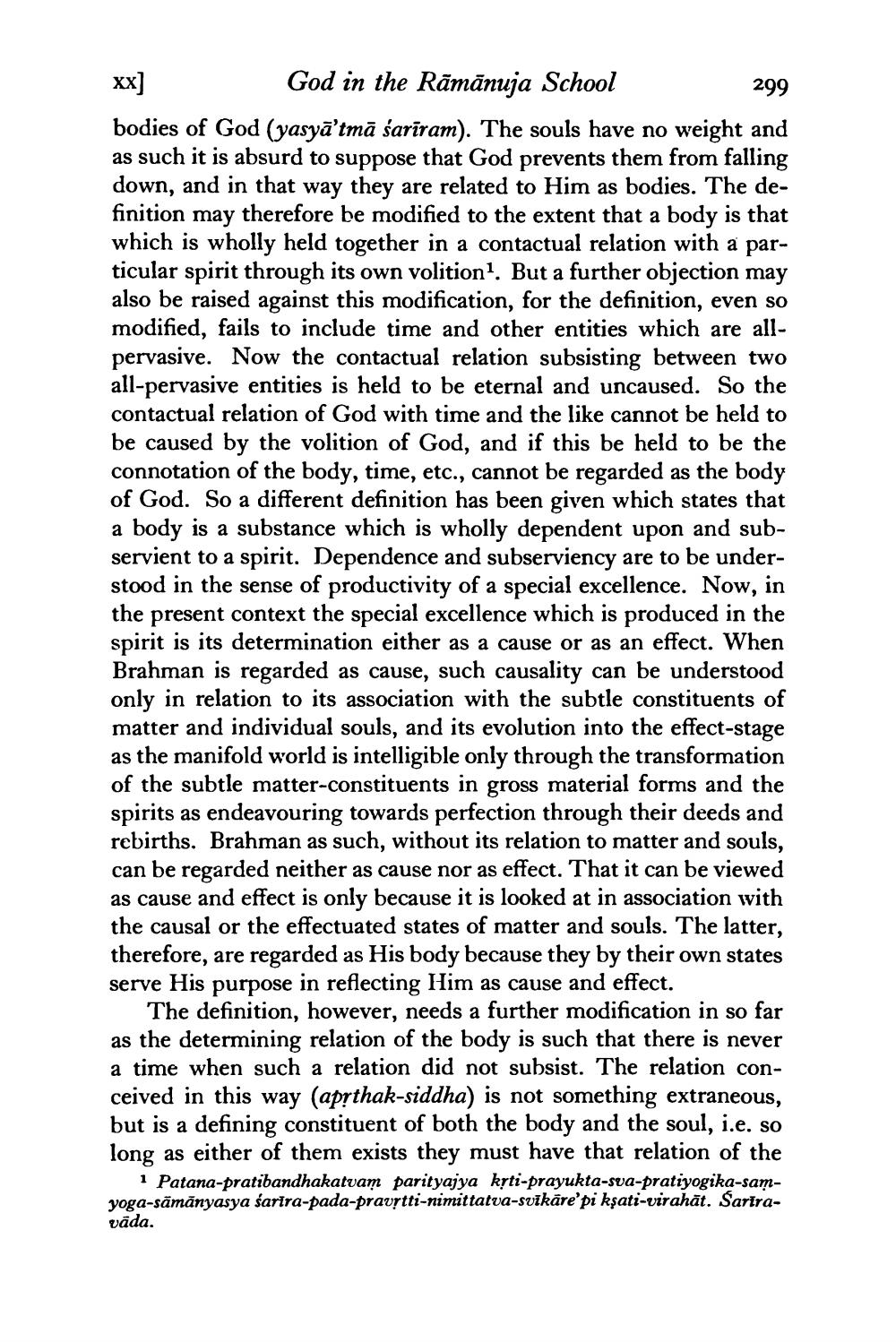________________
xx]
God in the Rāmānuja School
299
bodies of God (yasyā’tmā śarīram). The souls have no weight and as such it is absurd to suppose that God prevents them from falling down, and in that way they are related to Him as bodies. The definition may therefore be modified to the extent that a body is that which is wholly held together in a contactual relation with a particular spirit through its own volition1. But a further objection may also be raised against this modification, for the definition, even so modified, fails to include time and other entities which are allpervasive. Now the contactual relation subsisting between two all-pervasive entities is held to be eternal and uncaused. So the contactual relation of God with time and the like cannot be held to be caused by the volition of God, and if this be held to be the connotation of the body, time, etc., cannot be regarded as the body of God. So a different definition has been given which states that a body is a substance which is wholly dependent upon and subservient to a spirit. Dependence and subserviency are to be understood in the sense of productivity of a special excellence. Now, in the present context the special excellence which is produced in the spirit is its determination either as a cause or as an effect. When Brahman is regarded as cause, such causality can be understood only in relation to its association with the subtle constituents of matter and individual souls, and its evolution into the effect-stage as the manifold world is intelligible only through the transformation of the subtle matter-constituents in gross material forms and the spirits as endeavouring towards perfection through their deeds and rebirths. Brahman as such, without its relation to matter and souls, can be regarded neither as cause nor as effect. That it can be viewed as cause and effect is only because it is looked at in association with the causal or the effectuated states of matter and souls. The latter, therefore, are regarded as His body because they by their own states serve His purpose in reflecting Him as cause and effect.
The definition, however, needs a further modification in so far as the determining relation of the body is such that there is never a time when such a relation did not subsist. The relation conceived in this way (apṛthak-siddha) is not something extraneous, but is a defining constituent of both the body and the soul, i.e. so long as either of them exists they must have that relation of the
1 Patana-pratibandhakatvam parityajya kṛti-prayukta-sva-pratiyogika-samyoga-sāmānyasya sarira-pada-pravṛtti-nimittatva-svikāre'pi kṣati-virahat. Sarira
vāda.




